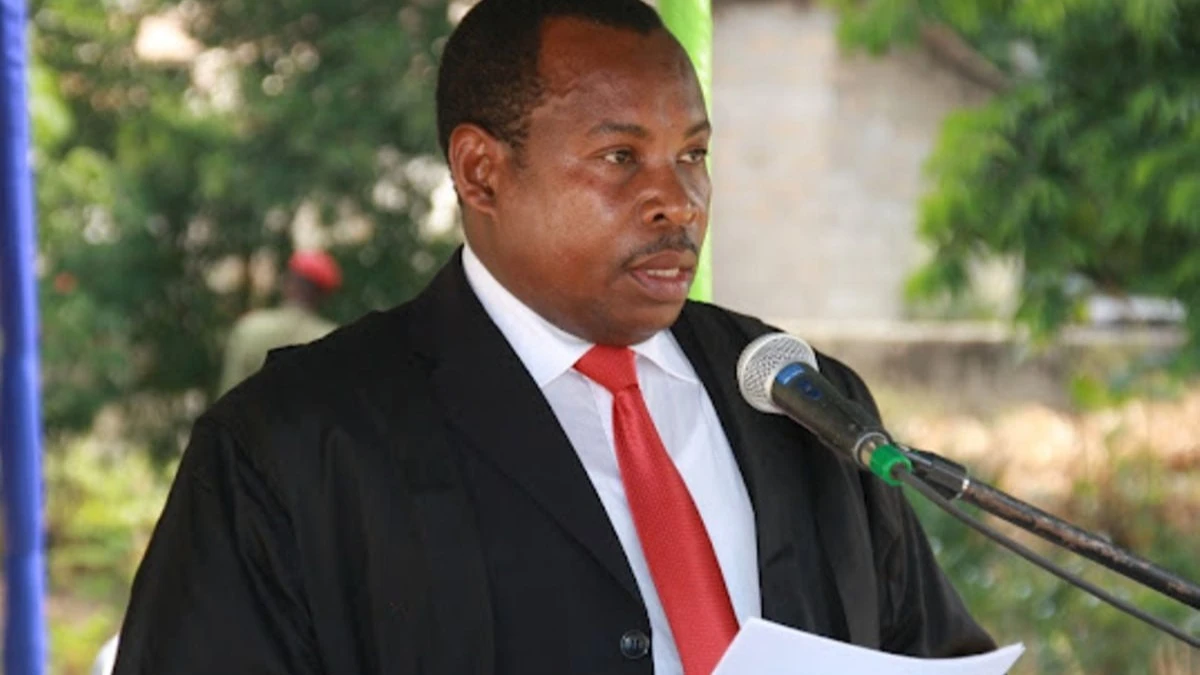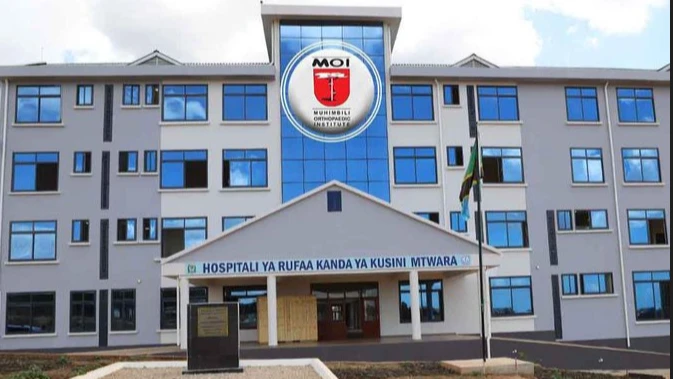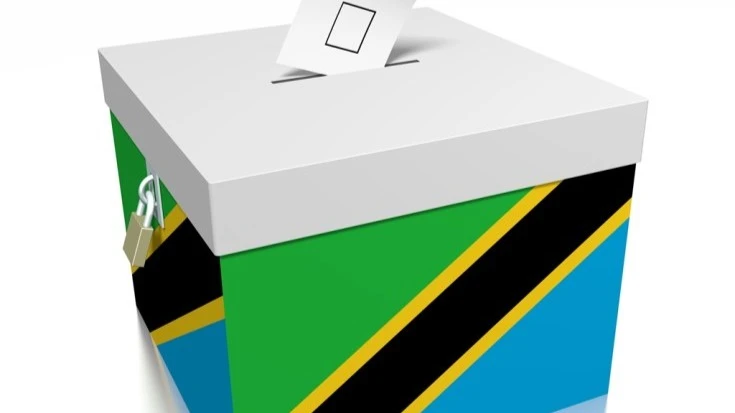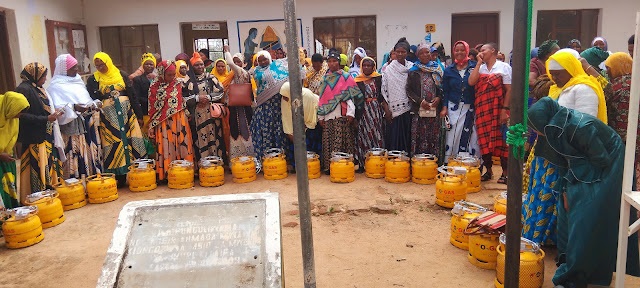Land reforms: Ndejembi's bold battle against corruption and land disputes

RECENT directives issued by the Minister of Lands, Housing, and Human Settlements Development, Deogratias Ndejembi, shine a glaring spotlight on the ongoing battle to uproot corruption and disorganization within the nation’s land management sector.
On October 26, 2024, Ndejembi called for decisive action against seven employees from the Ministry of Lands in Dar es Salaam, accusing them of participating in irregularities fueling land disputes in the region.
He directed the ministry’s Permanent Secretary to take appropriate disciplinary measures and involve the Prevention and Combating of Corruption Bureau (PCCB), signaling a zero-tolerance stance on land management corruption.
The accused employees confessed to their roles in fueling certain land conflicts in Dar es Salaam. A review of their case files revealed numerous irregularities, further validating the accusations. The meeting where Ndejembi made these assertions was attended by Deputy Permanent Secretary Lucy Kabyemela and other high-ranking ministry officials, accentuating the gravity of the issue.
Mr. Ndejembi’s approach resonates with a larger governmental commitment to restoring integrity in land governance, as his announcement follows in the wake of similar calls for accountability by Prime Minister Kassim Majaliwa. Majaliwa has, in recent months, publicly confronted officials over documented cases of fraud and misappropriation in public offices, emphasizing the government’s resolve to tackle corruption head-on.
The specifics of the Dar es Salaam case reveal a deeply concerning narrative. In one instance, an official was implicated in the alleged misappropriation of Sh 26 million during a single land transaction in Kinyerezi, highlighting the endemic nature of corruption in the sector.
Observers have pointed out that Tanzania’s lenient approach towards corrupt officials fosters an environment where misuse of public funds seems to go largely unpunished.
The public remains skeptical; many question whether the current approach of reprimanding officials without formal charges is an effective way to address the magnitude of corruption. If public trust is to be restored, law-abiding citizens argue, authorities must prioritize transparency, tangible action, and severe penalties for offenders.
This discontent isn’t confined to Dar es Salaam. In nearby Mbondole, Msongola Ward, former Lands Minister Jerry Silaa issued arrest orders for several individuals suspected by locals of land grabs and unauthorized sales of property belonging to the Green Foundation, a registered landowner since 2017.
During his visit to the contested land, Silaa confronted residents’ frustrations firsthand, noting that the unauthorized sale of these plots has escalated tensions in the community. The clash between legal landholders and opportunistic sellers reflects the complexities of Tanzania’s land management, where both community grievances and private land ownership rights frequently collide.
Public outcry over land disputes has also echoed in other regions, and the pressure for reform extends beyond urban centers. In Kagerankanda Ward, Kasulu District in Kigoma, villagers have petitioned the government, lamenting the loss of farmland within the Makere South Forest Reserve. They claim that the land was seized without prior consultation, disrupting their agricultural activities and livelihoods.
In response, Minister of State for Regional Administration and Local Governments (PO-RALG), Mohamed Mchengerwa, recently met with regional officials and directed District Commissioner Colonel Izack Mwakisu to clarify the matter. Mchengerwa’s involvement highlights the intricate web of administrative, environmental, and social issues entwined in Tanzania’s land conflicts, often impacting the nation’s most vulnerable rural communities.
Elsewhere, a rare moment of resolution came to residents of Mwanza, where Minister Ndejembi recently distributed 310 title deeds to local landholders, urging them to protect these documents. He emphasized that land ownership carries substantial economic significance and encouraged citizens to cherish their assets as both a financial and a cultural resource. While government efforts to stabilize land ownership are underway, pastoralists and farmers continue to clash over land use, particularly in fertile regions where both agriculture and grazing are vital.
The Dodoma region has its share of land disputes too. In Chemba District’s Mpendo Ward, a prolonged dispute in Kubi Village remains unresolved despite numerous attempts at mediation by local authorities. According to local councilor Bernard Kapaya, the community’s frustration is palpable.
He described a situation where villagers, instead of focusing on agriculture or other productive pursuits, are embroiled in a struggle for land that disrupts their lives. District Commissioner Jabiri Shekimweri recently announced an extension of the regional “Zero Land Disputes” campaign, aiming to reach unaddressed cases across the region.
Dodoma’s campaign seeks to alleviate the toll of these disputes on community productivity, as officials recognize that land conflicts have diverted residents’ energy away from development and self-sufficiency.
Tanzania’s persistent land conflicts underscore a systemic problem that requires more than piecemeal solutions. For genuine progress, the government could consider adopting comprehensive approaches successfully implemented by other nations facing similar issues.
In Rwanda, a national land registry reform transformed land management by creating a robust digital system that reduced ambiguity in land ownership claims. With every parcel registered and mapped, Rwanda has dramatically cut down on disputes.
A similar digital registry in Tanzania could increase transparency, eliminate redundant claims, and simplify the process of acquiring title deeds, creating a more accessible and accountable system for all Tanzanians.
In New Zealand, specialized land tribunals expedite land dispute resolutions, offering a model Tanzania might emulate. By establishing dedicated land dispute tribunals, the Tanzanian government could create a faster, fairer process for settling claims, relieving the ordinary court system and addressing community concerns promptly. Such tribunals could improve public perception and encourage citizens to trust the process, knowing that disputes will be addressed swiftly and fairly.
In regions like Kenya and India, where land is a major asset for rural communities, public awareness campaigns have proven effective. By informing citizens of their rights and responsibilities regarding land ownership, these programs have empowered communities to stand against exploitation and navigate bureaucratic processes confidently. Similar programs in Tanzania, especially in rural areas where education levels and awareness about land rights may be low, could give people the knowledge and tools they need to protect their land assets.
Additionally, Tanzania’s fight against corruption could draw inspiration from Singapore’s approach. Singapore’s anti-corruption framework is rigorous, with swift action and severe penalties for corrupt officials.
Known for its zero-tolerance stance, Singapore has become an example of how strict enforcement can boost public confidence and deter unethical practices. By increasing PCCB’s visibility in high-stakes cases and ensuring public access to outcomes, Tanzania could reinforce its commitment to rooting out corruption within land management.
Such measures hold promise for Tanzania’s beleaguered land sector. With a land governance system that protects ownership rights, fairly addresses disputes, and punishes corrupt officials, Tanzania can aim for a future where land is not a source of conflict but a foundation for growth and opportunity.
This shift will require consistent enforcement, policy coherence, and public involvement. As land is both a critical asset and a deeply personal possession, creating a transparent, accessible land management framework would not only foster development but could also bridge the trust gap between the government and the people it serves.
The government’s determination to tackle these issues today will shape the landscape for generations to come, transforming the land from a contested asset into a cornerstone of Tanzania’s national identity and economic stability.
Top Headlines
© 2024 IPPMEDIA.COM. ALL RIGHTS RESERVED

























